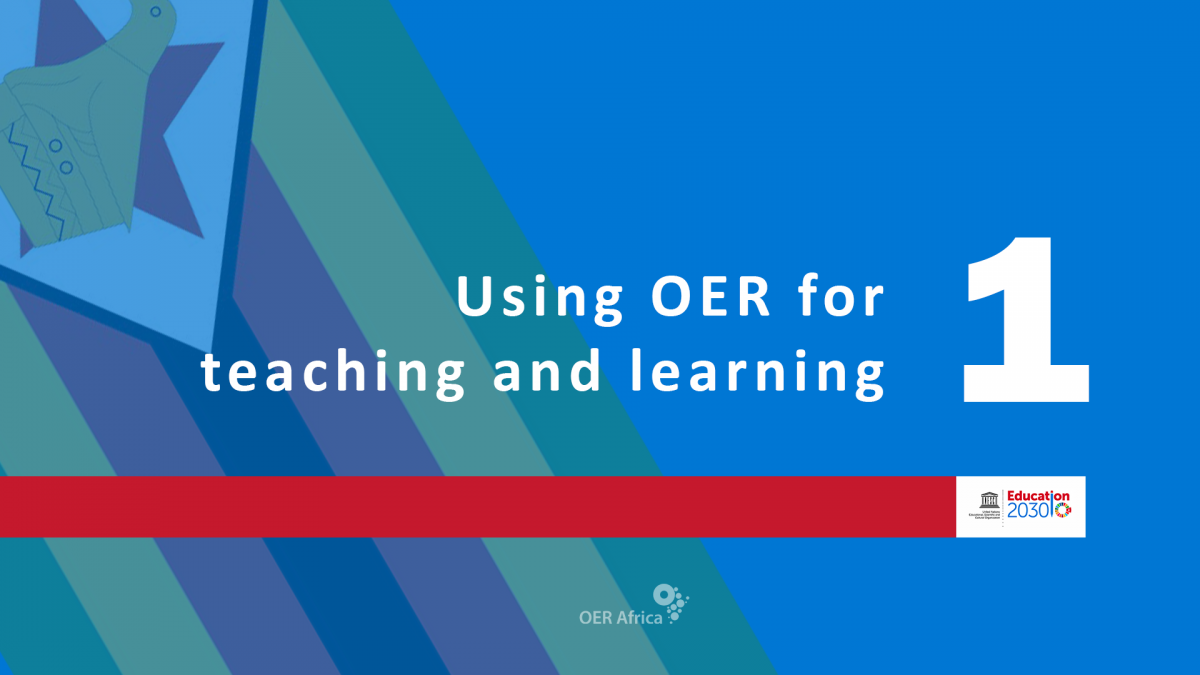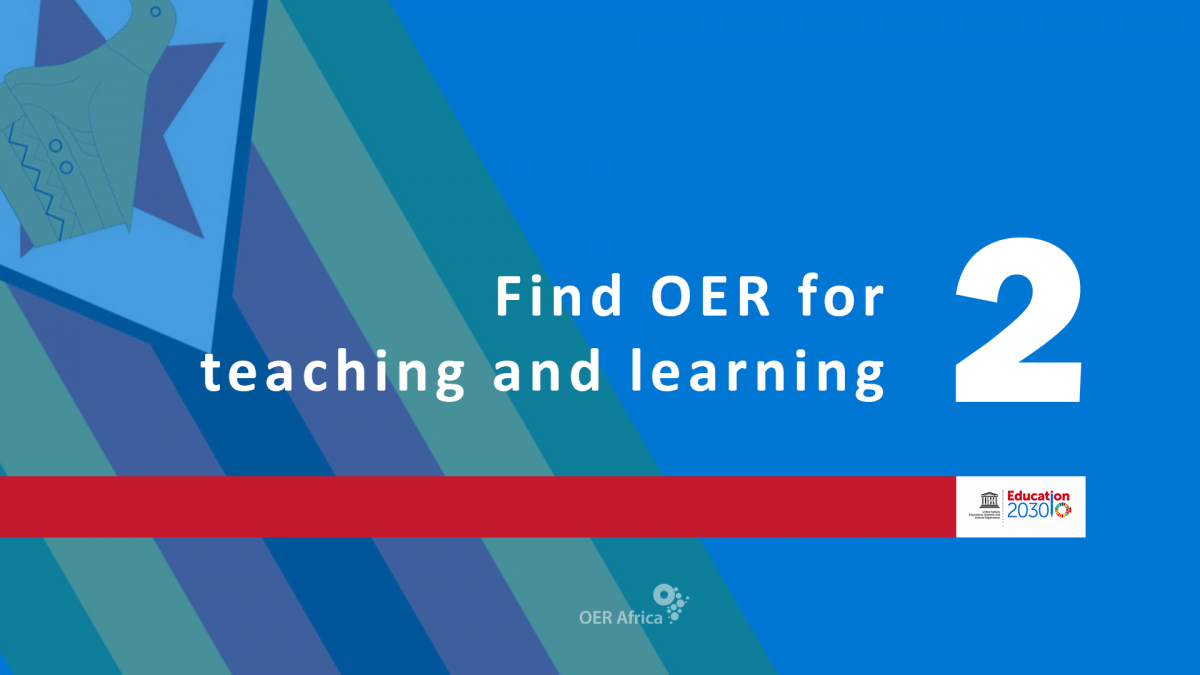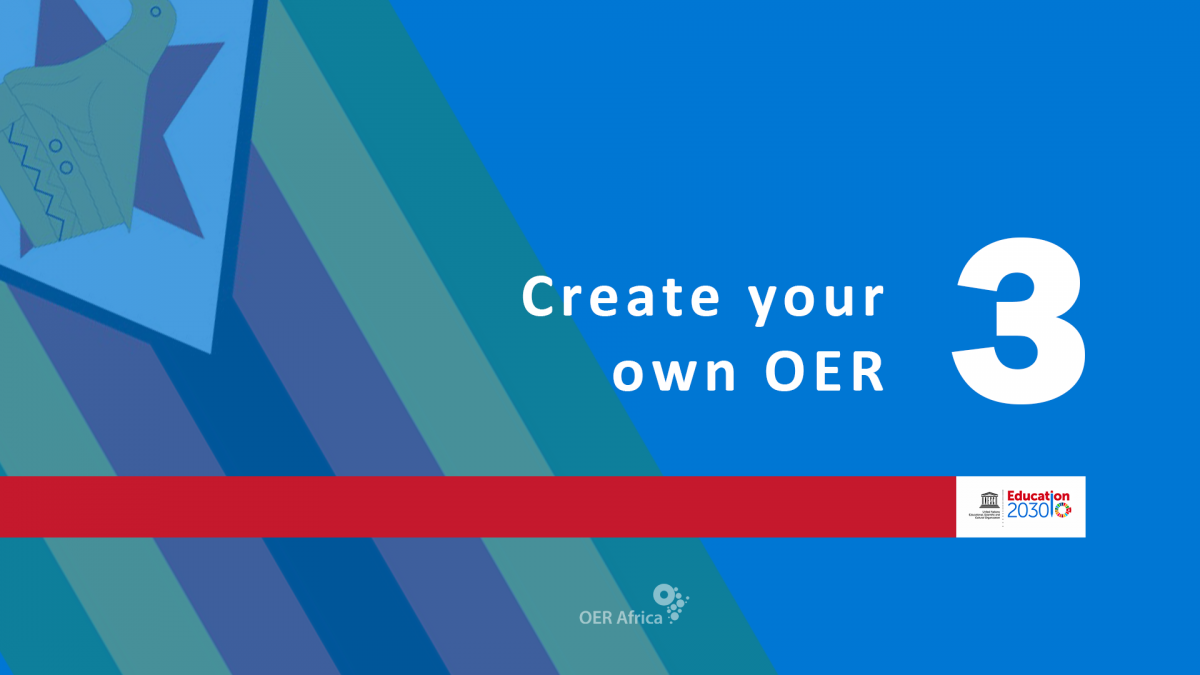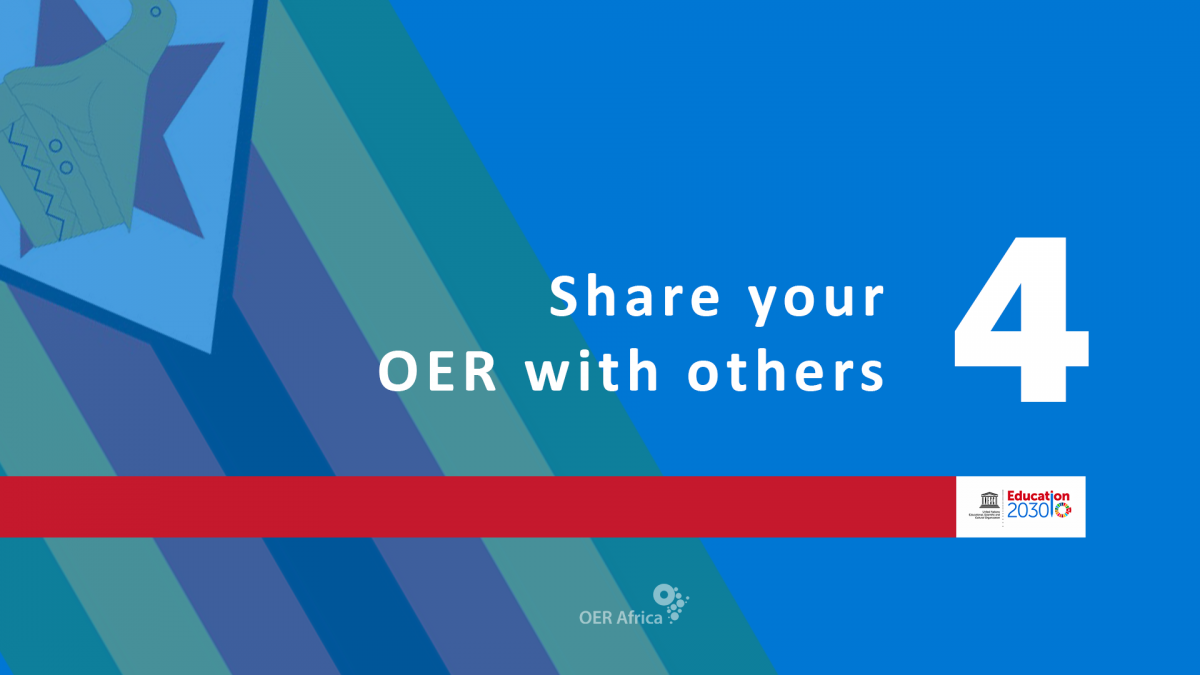The 5th of October is World Teachers’ Day! It is wonderful to receive global affirmation for the important contribution we teachers make. Please bask in the attention, which is well deserved.
But come the 6th of October the world shifts focus. Apparently, it is World Pumpkin-Seed Day and/or Take Your Daughter to Work Day, depending on who you ask. In the meantime, we will be left to get on with the job of preparing and empowering the next generation for another year.
Part of why the world nominates one day a year to pat teachers on the back is because parents and students DO appreciate those educators who find ways to keep students excited about learning. There is effort required to do this successfully. We are always on the lookout for creative and innovative methods. We are constantly scouring our surroundings for appropriate resources. This all takes time and creativity.
That’s where Open Educational Resources, or OER, can make a difference. According to Creative Commons, the open licensing authority, there are over two billion openly licensed resources on offer[1], free of charge, which permit adaptation to new teaching and learning contexts. In turn, we are encouraged to share our best work with others. The catch is that not all teachers know how to search, find, adapt, and share OER.
OER Africa has recently worked with UNESCO’s Regional Office for Southern Africa, based in Harare, to put together a series of four short tutorials on using, finding, adapting, and sharing OER for Zimbabwean educators. While these tutorials address the Zimbabwean context, they would be of interest for all educators wherever you are in the world.
The tutorials can be accessed here:
Tutorial 1: Using OER for teaching and learning
Adapted: March 2021
Short tutorial that defines OER, outlines their benefits in comparison to fully copyrighted teaching materials and introduces Creative Commons licencing and how to decipher them.
Click here to access the PDF version of this tutorial.
--------------------------------------------------------------------------------------------
Tutorial 2: Finding OER for teaching and learning
Adapted: March 2021
Short tutorial that demonstrates how to search for resources aligned to the MoPSE Zimbabwe curriculum using search tools such as Google Advanced search, Google image search, Creative Commons search and YouTube filters. It also investigates a number of open repositories ideal for primary and secondary educators.
Click here to access the PDF version of this tutorial.
--------------------------------------------------------------------------------------------
Tutorial 3: Create your own OER
Adapted: March 2021
Short tutorial on how to adapt existing OER and also what to consider when developing your own open resources. It also demonstrates how to generate your own licence plate using the Creative Commons Licence Generator tool.
Click here to access the PDF version of this tutorial.
--------------------------------------------------------------------------------------------
Tutorial 4: Share your OER with others
Adapted: March 2021
Short tutorial on how to publish your open resources on both the Zimbabwe EduConnect portal and also on OER Commons. The tutorial also provides teachers with a set of criteria to ensure high quality of published open resources.
Click here to access the PDF version of this tutorial.
--------------------------------------------------------------------------------------------
Why not invest a little time to acquire the skills to harness OER? The payoff is that you will be able to mine quality resources developed by your global peers to make your lessons even richer and more engaging than they already are. And, by sharing your best work, you can, in turn, receive global exposure and affirmation for your creativity and innovation every day of the year. Why wait until the next World Teachers’ Day before people notice the valuable contributions you are making for the next generation?
Related articles:
- What is the Purpose of Assessment? Looking at assessment of, for, and as learning
- International Literacy Day 2022: ‘Transforming Literacy Learning Spaces’
- Reinvigorating Libraries: South African Library Week 2022
- Open Pedagogy




